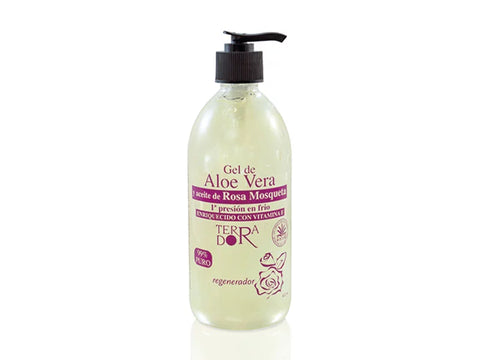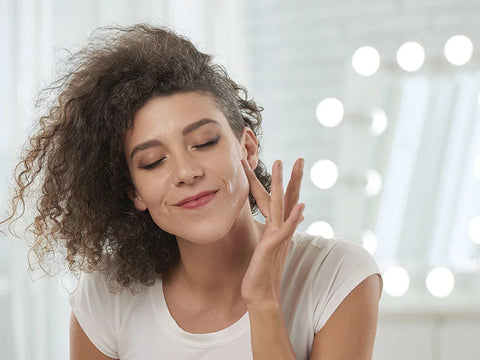The human body is subject to oxidation. It is often said that the moment we are born we begin to age. Antioxidants are molecules that have the ability to delay oxidation. What happens throughout this process is that substances called free radicals are formed and they are what damage our body.
What are the free radicals
Free radicals are damaged molecules that can form in our body or be introduced from the outside. They form when the body is not able to process oxygen adequately. This is what we call oxidation. Molecules are produced that are missing an electron. We could compare a free radical to a person who is missing an organ, and goes out to find another person to steal the missing organ. If this occurs, there is damage to the carrier. This is how free radicals act, they steal molecules from other cells and in this way they damage our body. Cells that have had an electron stolen also become free radicals, and this multiplied process is what causes aging and disease. Japanese scientist Yukie Niwa estimates that 85% of diseases are caused by free radical damage. Antioxidants act by fighting free radicals. They stop the oxidation of these and hence their name. They are like the “police” of our body that protects us against thieves. In animal tests it has been shown that those who were not administered antioxidants were 4 times more likely to die from a heart attack than those protected by antioxidants. This is why it is so important to protect against free radical oxidation. Everything you do to stop this process will make you age more slowly and get sick less.
Factors that Cause Free Radicals
- Tobacco
- Drugs
- Stress.
- Pollution
- Ultraviolet rays. (Skin ages 24 times faster in full sun.)
- Processed foods
- Excess physical exercise
- Radiation
- Chemotherapy
List of Main Antioxidants:
- Alpha Lipoic Acid : It is a protector of the liver, helping to improve its circulation and eliminate heavy metals and toxins that are stored in it. It is used as a supplement.
- Astaxanthin : Reddish antioxidant that protects the eyes from the development of cataracts, macular degeneration and blindness. Mainly used as a supplement.
- Betacarotene : Natural antioxidant that is transformed into vitamin A in our body. It also improves our immune system. We find it mainly in Nori Seaweed, carrots, spinach and chard.
- Bioflavonoids : Antioxidants that act by improving the function of vitamin C. Found in grapefruit seed extract, AÇai, goji and in the white part of citrus fruits.
- Glutathione : It is the main antioxidant of cells and is responsible for neutralizing free radicals, improving the function of some external antioxidants such as vitamin C and E and protecting against external carcinogenic substances. It is made in our body from three amino acids and can also be used as a supplement.
- Lycopene : Prevents cardiovascular diseases, protects against prostate cancer, and macular degeneration. Foods that contain it: Tomato, pink grapefruit, papaya, guava and apricots.
- Lignans : Plant compounds that protect against free radicals. They are found in small quantities in: Chia, flax, sesame, barley and rye.
- Lutein : Protects from: a) eye diseases b) the retina from light damage c) Ultraviolet radiation. d) Reduces the risk of cataracts and macular degeneration. Sources: Kale, broccoli, kiwi, spinach.
- Melatonin : Although it is known as a supplement to help you fall asleep better, it also acts as an antioxidant.
- Q10 : Antioxidant that protects against free radicals and inhibits the oxidation of fats inside cells. It is a protector of the heart and also produces energy in all the cells of our body. There are two types of Q10: ubiquinone and ubiquinol. The latter is of higher quality. It is used as a supplement.
- Resveratrol : It is an antioxidant from the polyphenol family that protects against cellular aging, cardiovascular diseases, cancer and excess bad cholesterol (LDL). It is present in the Polygonum Cuspidatum plant and in the skin and seeds of grapes.
- Selenium : Necessary for the formation of antioxidant enzymes. It slows down aging and is anti-carcinogenic. Main source: Seaweed and vegetables.
- Vitamin A : It is an ocular antioxidant and slows down cellular aging. It is present in: Carrot, broccoli, kale and potatoes.
- Vitamin C : Antioxidant that prevents premature aging. The most important sources are: Camu Camu, rose hips, acerola, goji and kiwi.
- Vitamin E : Prevents the oxidation of fats in the body. It is found in wheat germ, chia, nuts.
- Zeaxanthin : Antioxidant of the macula of the eye, present in seaweed.
- Zinc : It is an essential chemical element necessary for the formation of superoxide dismutase (SOD). This enzyme is a powerful internal antioxidant. We find zinc in: Whole grains, sprouted legumes, nuts, mushrooms and green leafy vegetables. If you use any of these antioxidants in supplement form, the antioxidant effect is multiplied. However, there are many synthetic supplements that your body DOES NOT absorb and that are also toxic. Using the highest quality ones ensures their effectiveness.
But there is one superior to all of these!
Generally, we associate our health with what we eat and the supplements we take, but not so much with what we drink. However, we are 70% water and what we drink has a greater influence than what we eat. We give a lot of importance to antioxidants, but we rarely think that the vast majority of the water we drink oxidizes us, and that the ideal would be to drink water that, in addition to hydrating us, acts as an antioxidant. That is hydrogenated water, and there is no liquid more antioxidant than that. In the following video I show you a measurement that confirms the antioxidant capacity of this water:
In my opinion, hydrogen is the best natural antioxidant that exists since its small size means that it can act even inside cells, something that almost none of the antioxidants do. I have been using this water for a year and I have verified its benefits both in myself and in some people to whom I have recommended it. If you want to know better the properties of hydrogen, you can do so here:
https://www.remediosnaturales.es/pages/agua-hidrogenada
Cheers, Juan Torrontegui






Comments (0)
There are no comments for this article. Be the first one to leave a message!